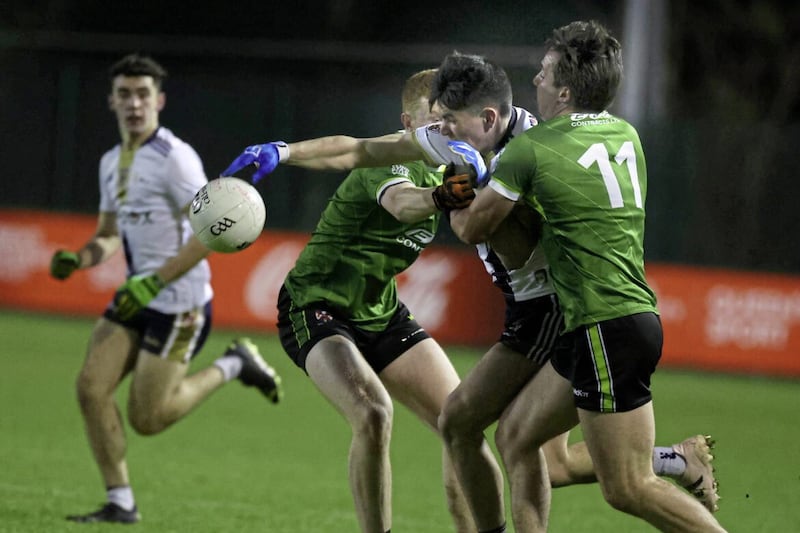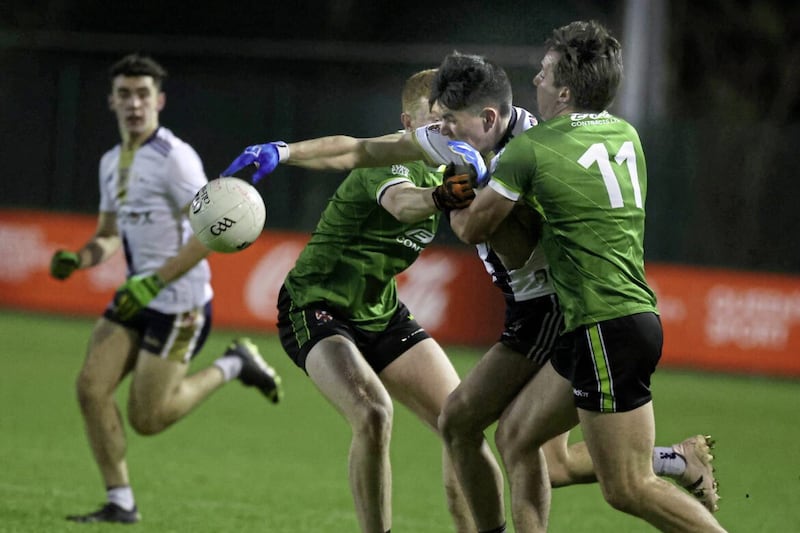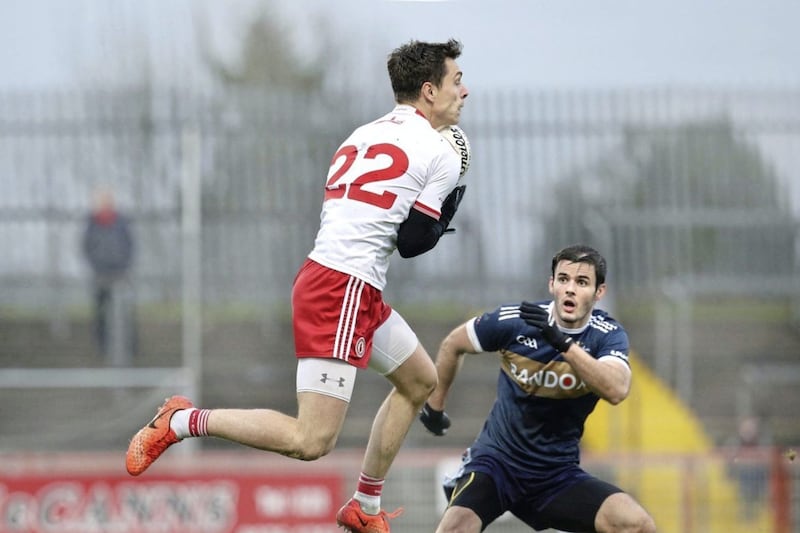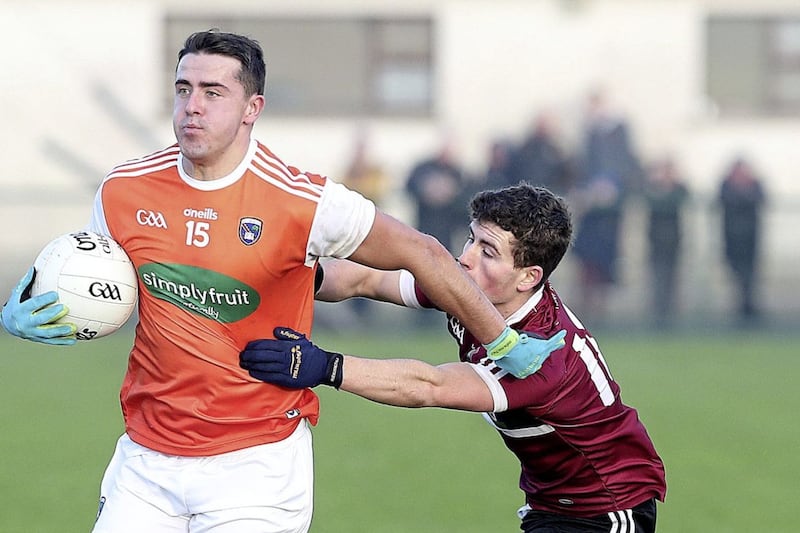ULSTER’S third level colleges will meet with provincial secretary Brian McAvoy to call for a new ruling on selection for the Dr McKenna Cup.
An issue that has lingered over the competition for years came to the surface on Sunday after St Mary’s 25-point hammering from an Armagh side that included several student players and now the three university teams – Ulster University (UU), Queen’s and St Mary’s – are calling for a new law preventing counties from picking players named on college panels for the group stage.
UU were without seven players when they began the competition against Fermanagh last Saturday. Benny Gallen, Brian Kennedy, Ben McDonald and David Mulgrew (Tyrone), Gareth McKinless (Derry), Ryan Owens and Jason Duffy (Armagh) were all involved with their counties and UU GAA President Tommy Joe Farrell says the time has come to put the annual college-versus-county debate to bed once and for all.
“The third level colleges will be approaching the Ulster Council to see if it (the rule) can be reviewed,” said the Hilltown native.
“What we would like is a new rule that if you’re named on a third level panel you are ineligible to play for your county in the early stages of the competition.
“If your county does qualify for the knockout rounds you’re then able to go and play for them so when they get to the latter stages of the competition the counties will have their full squads.”
Farrell makes a convincing argument that full-strength college sides would improve the overall standard of the competition. He says that would provide counties with better preparation for the National League and allow the colleges to progress to the Sigerson Cup on a secure footing.
“The Sigerson starts in January and the idea (to introduce college teams to the McKenna Cup) was that the third level colleges would have three competitive games before the Sigerson,” he explained.
“We’re getting three games but unfortunately we’re not playing with our full teams. St Mary’s were missing players, we’re missing players…
“We’ll be playing the McKenna Cup with a team that will be nowhere near the Sigerson team so it (the status quo) defeats the purpose in terms of the essence of the competition.”
He added: “The whole premise of the competition when the colleges came in was that it was win-win for everybody.
“The counties could see their own student players up against county standard players and the big thing for colleges was that we were getting publicity and three good competitive matches before Sigerson.
“But somewhere along the line over the last couple of years that has not happened.
“It is making the competition weaker and I don’t believe Sunday’s result did Armagh any good and it certainly didn’t do St Mary’s any good.
“Supporters don’t want to see a slaughter but if they know the colleges are going to give the counties a run for their money then there’s more likelihood that they’ll come.”
Farrell accepts that no changes will be made to this year’s competition but he hopes to see the new regulations introduced from 2020 onwards. He says agreement can be achieved with “a bit more co-operation”.
“Every year it’s the same old chestnut: ‘Who should the university boys play for?’ In my opinion they should be playing for their university,” he said.
“The smaller colleges like St Mary’s don’t have the resources to cope and you can’t bring just anybody in to play against a county, it’s not possible and if you do that you leave yourself open to an absolute hammering.
“Also, the vast majority of students are 18-22, whereas county players are anything from 18 to 30. The headline after the St Mary’s match was ‘Men against boys’ and that’s exactly what it was.
“Some counties go with the spirit of competition and there’s never an issue and other counties don’t. In the long run, this has to be addressed.”








